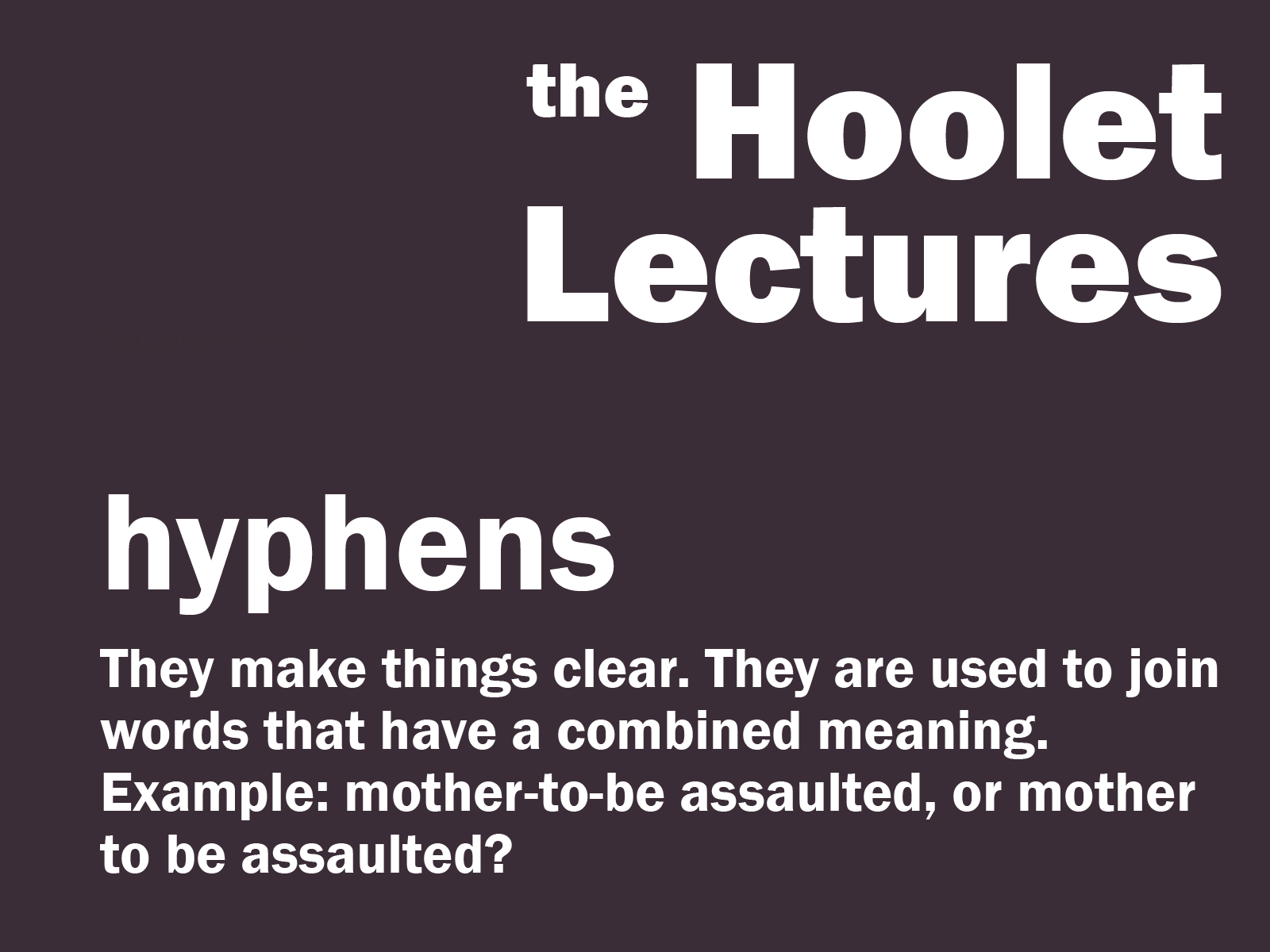Hyphens are very important for clarity in adjectives (aka “describing words”).
“She never gives tips to black-cab drivers” is a world apart from “She never gives tips to black cab drivers”.
See also “mother-to-be assaulted”, and “mother to be assaulted”.
You need a hyphen for compound adjectives, as in: “If I come with you in first class, will you buy me a first-class ticket?”
So you’re linking the two adjectives together.
To make things more confusing, there might be no hyphen in the noun “the second half”, but there will be in the adjective, “a second-half goal”.
But they are not used when part of the adjective is an adverb (so probably ending in -ly): “badly researched report”, “severely wounded man”, “newly cleaned car”.
Wondering about the difference between adjectives and adverbs? A simple rule of thumb is adjectives describe nouns (things), and adverbs describe verbs (actions).
Delivered to you as part of #TheHooletLectures – regular helpful pointers that we try not to let descend into a general rant. But we don’t make any promises.
Hoolet is a strategic communications consultancy. Come say hello on Twitter at @hoolet_hoots, or follow us on LinkedIn. You can read more blogs here.

